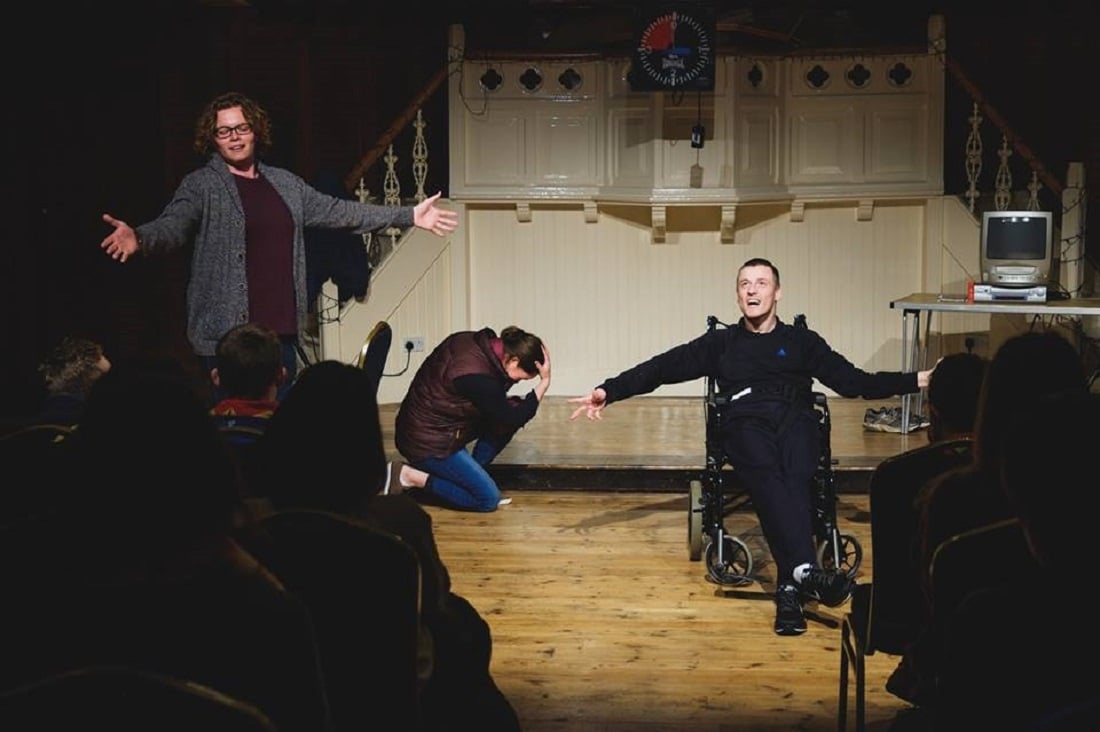
Photo: Battersea Arts Centre - Collaborative Touring Network
In it for the long haul
Esmée Fairbairn Foundation will be making fewer, larger grants in future and collaborating on longer term projects that have a real chance of being taken to scale. Alison Holdom explains their new strategy and what they hope to achieve.
The Covid crisis has disrupted every aspect of our lives and we can’t predict the shape in which our communities will emerge, particularly those already struggling. For us as a funder, this crisis has increased the urgency of making sure that we are doing everything we can to confront the challenges that face society such as the climate emergency and the depth of inequality.
Inspiring impact
We see the arts as a powerful force for good and they have been central to our work since our inception and will continue to be. At the heart of our new strategy is a focus on finding and supporting those organisations that have brilliant ideas for making progress in three areas: improving Our Natural World; tackling injustice to deliver A Fairer Future; and nurturing Creative, Confident Communities. When we find these brilliant organisations and new ways of thinking we will back them for the long haul because real change takes time and huge effort.
This approach has been inspired by some of the arts programmes we have funded in the past, such as the Battersea Arts Centre (BAC) Collaborative Touring Network, which we have supported since 2013. This programme helped eight regional producers/companies in areas with low cultural provision to create bi-annual festivals that provided a local infrastructure to support a culture-led regeneration in their towns and cities. The programme delivered 84 festivals around England, engaged approximately 30,000 people and provided significant training and employment opportunities for local people. It has toured the work of over 40 artists and companies into more than 300 community spaces. All eight regional producers are continuing to create work in their communities and many of the festivals became firmly established events.
Another fantastic example is B arts in Stoke. In 2014 we funded them to lead Artcity Stoke, a consortium of participatory arts organisations aiming to use creativity and the creative heritage of the city to generate a confident new narrative for Stoke. The consortium used empty, mostly council-owned, buildings and open spaces as venues in which established and aspiring artists could create, develop and show their work, all aimed at making Stoke a destination for art makers from the UK and elsewhere.
Critical importance
The reason we backed these projects was their ambition, the social change they sought, and their use of the arts to transform aspirations and opportunities for overlooked or struggling communities and the people who live in them.
What I find exciting about our new approach is the arts community has so many organisations like BAC and B arts, brimming with brilliant ideas, a commitment to increasing diversity and inclusion and a canny ability to make things happen, whatever the difficulties faced.
All of this was important before the pandemic, but it is even more critical now.
We know this is an incredibly difficult time for the arts sector and the valuable people who work in it. We have heard from our grantees about the impact of Covid-19 on their work, their staff and freelancers, and their future plans. We have also seen the extraordinary, swift, creative and empathetic response that the arts sector has made, supporting their audiences and communities and changing their delivery and business models at short notice.
A long-term strategy
The arts community has a pivotal role to play in helping disadvantaged communities recover from this crisis and we want to support arts organisations to be able to do this. It’s crucial for two of the strands in our new strategy – tackling injustice to deliver A Fairer Future and nurturing Creative, Confident Communities.
In that first strand we’re looking for partners to help produce a new, inclusive and more representative generation of leaders and artists by empowering young leaders, removing barriers to creative careers and opening up access to cultural education.
The second strand is about creating vibrant towns, villages and cities, giving people a voice and an active role in the places they live. We want to find those organisations that are building strong places for the future where everyone can access the benefits of culture and creativity.
We have big aspirations for this work, working at a city or even a regional level. As a result, we are going to be making fewer, larger grants and collaborating on longer term projects that have a real chance of being taken to scale. We are moving away from smaller scale or more general community engagement to concentrate our support where we feel it can deliver the biggest impact.
Speaking up for those who can’t
We are committed to using every tool we have to unlock change – collaborating with others, influencing those in power to get behind and adopt the approaches we are supporting, using our voice more and giving a platform to those often denied the chance to speak to power – people of colour, people with disabilities, those often without the opportunity to take action themselves.
The impact of the Covid crisis is showing just how vital the arts are to the health, wealth and wellbeing of our communities. When we move into the recovery stage at some point in the future, we want to be working with the arts community, to support it as it plays a lead role in that recovery, fostering a new generation of artists and leaders and helping to revitalise the places where we live.
Alison Holdom is Funding Manager – Lead Arts and Heritage, at Esmée Fairbairn Foundation
![]() esmeefairbairn.org.uk
esmeefairbairn.org.uk
Join the Discussion
You must be logged in to post a comment.